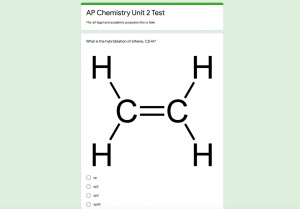No, BLS Should Not Have Virtual Tests
November 30, 2020

Online testing is time-consuming, stressful and encourages intolerable behavior, such as cheating. With the first quarter of the school year coming to a close, every student has likely sat through a silent Zoom call taking a test via Google Forms — once used mostly for club sign-ups and project surveys, but now used for taking tests with impacts on a students’ grades. Online testing is the worst possible use of everyone’s time.
Virtual school cuts our class time in half. Excluding the time it takes to sort out technology issues on both the teacher’s and students’ end, we only have 135 minutes per class every week. Taking 35 or 50 minutes for a test, up to a third of weekly instruction time, is an inefficient use of the precious time that teachers could have used for instruction.
Besides, teachers already have more than enough on their plates as it is. With the switch to online learning, they have to get used to new technology and help their students with tech issues as well. They have to waste more time by creating several test versions to prevent cheating and it takes even more to grade all of them. Even with all of this preparation, teachers can, in reality, do little to protect academic integrity given how easy it is to cheat.
Ms. Sophia Campot, an English 12 teacher, says, “There is a place for timed writing and for ‘traditional’ test formats. […] In the virtual setting, it is almost impossible […] to determine how to administer such an exam and ensure that the students’ answers are authentic. Cheating is incredibly easy in an online format, and I would rather that you articulate your ideas through an oral presentation or writing assignment than by Googling an answer to a question and forgetting it immediately after.”
It is an open secret that many students cheat, and online, there is simply no way to catch them. In the information age, almost everything can be found on the internet. Evidence suggests that cheating occurred during the nation-wide AP exams last May, for instance. On Google Trends, there was a skyrocket in AP United States History related words such as ‘Manifest Destiny’, ‘Who won the American Revolution’ and ‘was slavery bad.” Certainly, this was not a coincidence.
If an international corporation cannot stop students, then a local school will not have any more luck.
The crux of the problem also lies in the unnecessary stress that online testing places on students. Students who do not study will not develop good habits to carry to college, and students who do study have to deal with the inflated curve. These students will have to struggle with attempting to study more while fighting the ethical battle in their head — all while stuck in the middle of a disastrous pandemic.
Furthermore, technical difficulties only further complicate the affair. Strained internet connections, computers randomly shutting down and Zoom meetings crashing are all common occurrences in classes.
Rather than continue to use this faulty and burdensome system, teachers should switch to in-class discussions or asynchronous work, like projects and other forms of graded assessments. Group work and projects without direct answers online will force students to conduct research, put time and effort into their work and will give teachers a better idea of students’ qualitative understanding of the coursework.
Pivoting towards alternatives will benefit students in terms of learning and mental health which will also allow teachers to give fair grades while better informing students about their quality of instruction. Not using online testing is a win-win situation for everyone.




